What’s up with the unconfirmed Google search ranking updates in July?
Google's Maverick update is still being talked about in the SEO industry but Google has yet to officially comment on it.
Between July 11 and July 18 the search industry picked up on somewhat significant volatility in the Google search results rankings. This was picked up by both the various toolsets that track Google ranking changes, as well as the SEO community that documents changes they see happening with their clients.
We have asked Google numerous times for a statement but at the time of writing this story, Google has not responded. The best we have is when I asked John Mueller of Google about this in yesterday’s webmaster video hangout and he basically said he doesn’t know.
The fluctuations in Google’s rankings. As many of you know, I track Google’s ranking changes very closely from a community perspective. On my personal blog I documented changes around July 11, July 16 and much more significant changes on July 18. There was a spike in “chatter,” as I like to call it, from within the SEO community on social media and within the discussion forums.
The tools corroborate. The tracking tools from SEMRush, Moz, Algoroo, RankRanger and others also show similar patterns that corroborate what the SEO industry is noticing with their client’s traffic and rankings. Here are charts, in no specific order, from those toolsets that show the volatility in Google’s search rankings over the past 30 days.
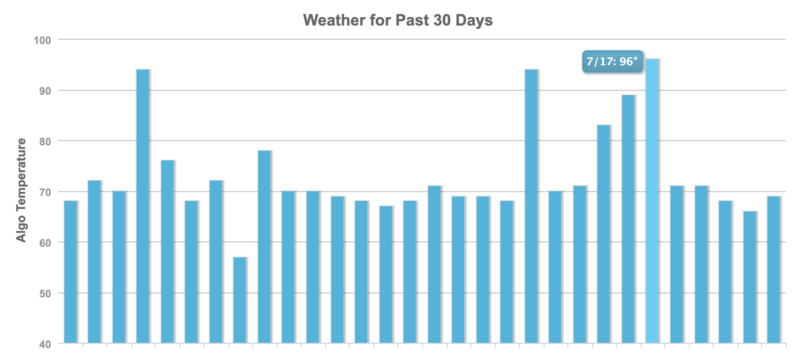





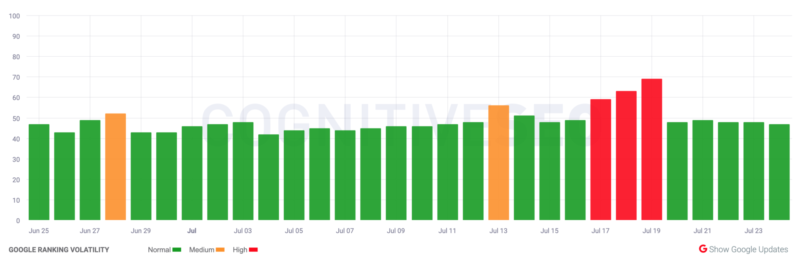
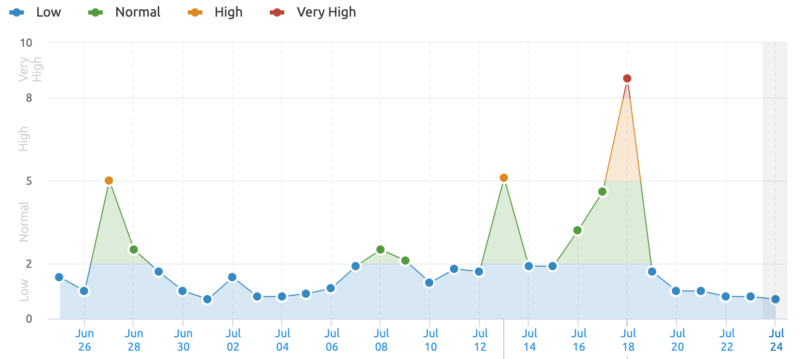
Google’s non-statement. As we said above, Google has not responded to our requests for a statement. Google did pre-announce the June core update and said they would likely pre-announce future updates.
Mueller said at the 1:27 mark into yesterday’s video hangout: “Updates. I don’t have any update news. I saw a lot of blogging and tweeting on updates, so I don’t know what is specifically happening there. I don’t know. We will see. I haven’t chatted with Danny (Sullivan) about that. So, not quite sure. But we always do updates. I think it is more about if this is one of those core updates and which month will it be called after.”
Digging deeper with data providers. We asked some of the data providers to send us more data and insights into what they saw around these unconfirmed updates. The general consensus was that this was a weird update and hard to find patterns with. Even when comparing it to previous core updates, this one seemed different.
RankRanger: “There were a few interesting patterns (or lack thereof)” including some sites that saw a nice ranking increase during the initial roll-out of the update saw those gain reversed on the 18th and some sites saw a gradual increase after the June 2019 update (or even since the start of July) but saw those gain erased with this roll-out, Mordy Oberstein from RankRanger said. Mordy felt that this update and all the “reversals” he saw related to it was an update that didn’t go as planned for Google.
Here is the RankRanger chart of fluctuations by niche and ranking position:
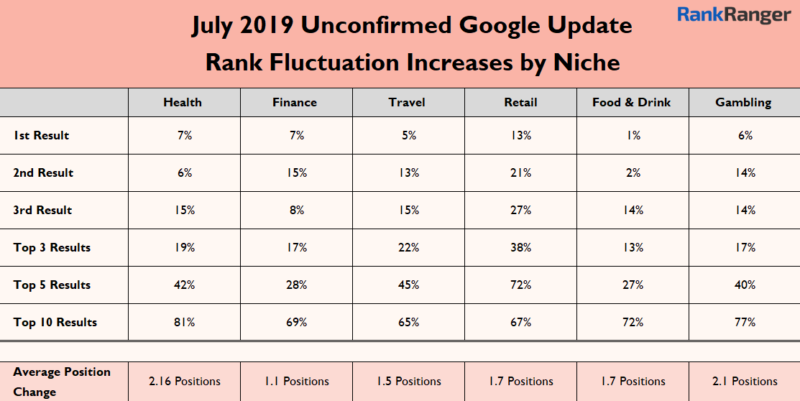
SEMRush: Olga Andrienko and her team at SEMRush also sent us some interesting data. Some of the data they found surprising and they would classify the July 18 changes as a “general update.” But there was no clear niche specifically impacted based on the data they pulled.
Here is a chart from SEMRush with the volatility by those two days across niche. Note, 10 would be the highest volatility:
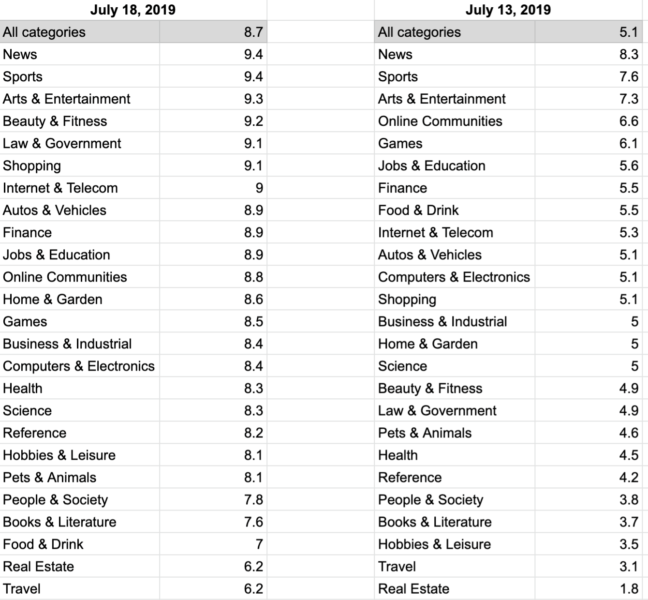
SearchMetrics: Marcus Tober from SearchMetrics also sent us some data and he is also confirmed that there were changes but said he “can’t confirm an update with the impact of the June or March core update,” meaning at the same level of those updates. When he compared the biggest losers from that update to what happened in July, he saw no pattern.
Marcus Tober said ” Some pages that lost during the last core update(s) like nfl.com or humblebundle.com won visibility (more than usual) and some others that were losers before lost even more like sparknotes.com, draxe.com and mercola.com. Other bigger losers like dailymail.co.uk, mindbodygreen.com or wondershare.com had no change at this update.”
Marcus concluded “that Google did some minor, but larger than usual tweaks on their algorithm, but no update that is worth to get a name or to call it “Core”.”
The name. Some in the SEO industry has named this update the Maverick update. Brett Tabke, the founder of WebmasterWorld, in fact named it this update in the WebmasterWorld discussion thread saying “Update Maverick (in honor of yesterdays Top Gun trailer release). Because this update looks a bit stealthy and precise. However, all the major algo tools are reporting an update has occurred.” Not everyone is a fan of this name but he and WebmasterWorld has named updates since the early 2000s.
Why we should care. Now, chasing algorithm updates is not something any SEO would recommend. But it is good to know when Google does an update that may have impacted your web site’s ranking. Knowing it may have not been something you did or changed to your web site technically is useful to know. Knowing that Google may a change is helpful. It is also helpful, on an emotional level, knowing you are not alone when an update hits your web site.
What to do now? It is not clear. We can share Google’s previous advice that you should just continue to work to make your website better by improving your content, user experience and overall performance of your web site.
Search Engine Land is owned by Semrush. We remain committed to providing high-quality coverage of marketing topics. Unless otherwise noted, this page’s content was written by either an employee or a paid contractor of Semrush Inc.


